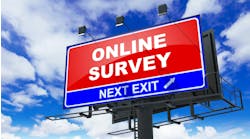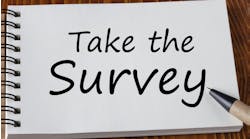Orca AI's Yarden Gross
Imagine a future in which ships are intelligent and able to make decisions autonomously based on data, getting from A-to-B on their own, all while communicating with other vessels and on-shore personnel. This happens on a daily-basis in the aeronautics industry and is becoming more commonplace within the car industry. Without advancements in technology, planes and cars would be stuck in the 1980s, and I think we can all agree that the direction those industries are heading is a fantastic example of the future of travel and couriering.
By applying the same technology to the shipping industry, we will be able to create intelligent vessels of the future that will be able to make immediate, thoughtful decisions based on their surroundings. However, there are two major obstacles to achieving this vision—the creation of the technology and finding the right methods to implement it.
Shipping is, of course, a traditional industry. But technology has evolved to a point where, with use of onboard navigation sensors and high-res cameras with proprietary algorithms, crews are able to monitor their surroundings in real time and make more informed decisions. This use of AI brings us one step closer to full autonomy.
The use of data and connectivity is becoming an increasingly important factor in understanding the industry. Ships today are more connected than ever before and all major shipping companies continue to seek out digital solutions. This data provides a goldmine of insight across the board—think asset management and fuel / safety optimization—and therefore is becoming a much more viable option adopted throughout.
The connected approach adds an extra layer of safety across the board, whether it be in the field or on the vessel where we are providing a valuable tool for captains and officers to utilize when they are facing very difficult and complex situations. Additionally, the technology boosts shipping experiences in night passages with bad weather conditions in highly congested areas surrounded by hundreds of other vessels large and small. These difficult situations are constantly increasing as trade continues to grow.
On a second level, there are also the advantages gained from the analysis of the data. Captains can quickly identify the areas that they need to focus on and increase their training efforts to mitigate their risks, making them more attractive to their charters. These quick and agile new approaches to improvement are almost instantaneous and help crews and customers identify what needs to be improved, why it needs to be improved and how to do it.
Sustainable shipping
At its current rate of growth, the global maritime trade is forecast to see 3.4% annual growth by 2024. With this growth it’s important that industry leaders are evaluating their processes and improving upon current performance. The technology we embed offshore allows for all sorts of parameters to be checked and analyzed constantly by AI, therefore taking some of the unnecessary pressure off of the crews. Not only is this beneficial for insurance, safeguarding and risk-prevention, it also allows crews and companies to align and work toward becoming more sustainable.
The technology and AI can reduce emissions, optimize voyages, provide real-time analytics and give a level of transparency that creates a consensus on events, which in turn can be used to better handle claims and paint a clearer picture for the future of the industry.
The best is yet to come
The first autonomous ship is setting sail across the Atlantic soon, which is a great thing for the industry and marks the first step toward the total autonomous maritime vision that we have. There’s still a lot of progress to be made, however. A clear long-term approach to autonomous shipping needs to be addressed as we continue to work, gradually, toward a more sustainable and reliable future throughout the industry. Developing AI technology is a big factor in this.
With this in mind, the main use cases and benefits are the guarantee that it will monitor and prevent risk, it will reduce workload, will provide the ability to safeguard teams, will provide the tools to record events for insurance purposes, and will provide unprecedented transparency and effective training opportunities between ship and shore.
By enabling advancement in technologies, we’re shown that the sector is open to change and willing to embrace it. The next step is educating customers and businesses on why it’s important to make these changes.
By Yarden Gross, co-founder and CEO of Orca AI




